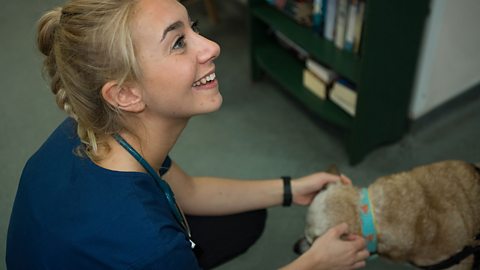Meet Georgia, 21, a science apprentice for MedImmune. She helps develop medicines. Part of our Bitesize world of work series.
Georgia:
I'm Georgia, I'm 21, and I'm a science apprentice.
I'm doing a Level 6 degree apprenticeship at MedImmune, where I spend four days a week in the lab learning on the job and one day a week studying. MedImmune focuses on making biologics. Biologics are a type of medicine that uses the immune system of the person to create a medicine that makes that person's disease better. A medicine is a substance that is used to treat and help improve a certain disease. So, with my work, we're hoping to have the overall aim of understanding diseases better. So being able to see what the disease actually does to the organs by looking at it down a microscope. From day-to-day, I could be running experiments, cutting up tissues, and just generally learning from my colleagues around me as well.
Growing up, I was always completely fascinated by science because it was something that I could relate to and I can actually see it happening in real time. So if I learnt about plants, for example, when I left the classroom and saw plants, I'd know that what I'd learnt was happening at that time while I was looking at that plant.
As part of my apprenticeship, I've been developing my technical skills as well as my scientific skills but, on top of that, it's taught me a lot of personal skills. So some of those have been communication and a big part of that has been learning that it's OK to ask for help. So, when you're stuck on something or you're not sure, it's always OK to ask and there's always someone there that's willing to answer.
Working in a science lab has been fantastic. It's so fun. It's really fulfilling - the work that we do here on a day-to-day basis actually improves patient lives at the end of the day. So, going from a young girl that was really fascinated by Biology at school to working in a lab now, it's a fantastic opportunity and I never thought I'd be in this position now, especially not at this age.
I was always completely fascinated by science because it was something I could relate to.
- Georgia enjoyed Science at school because of its relevance to people and the environment
- She has a hands-on role in a lab as part of the pathology team. Pathology is the science of the causes and effects of diseases
- Georgia's lab is part of a large pharmaceutical company which specialises in developing new medicines to cure and treat diseases.

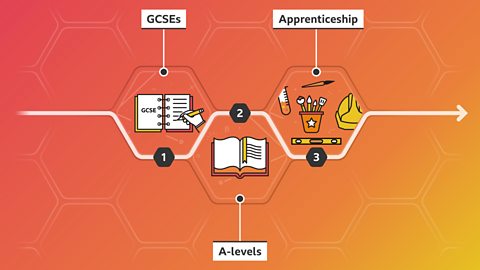

Georgia’s apprenticeship will give her a degree-level qualification and the skills to pursue a career in the science sector. For example, with further study, such as a PhD, she could work as a research scientist. They carry out experiments and investigations to broaden scientific knowledge in areas like medicine.
What to expect if you want to be a research scientist
- Research scientist average salary: ÂŁ15,285 to ÂŁ40,000 per year
- Research scientist typical working hours: 39 to 41 hours per week
What qualifications do you need to be a research scientist?
You'll need an honours degree in a Science subject and, usually, a postgraduate qualification like a PhD. You could get your degree at university, or through a degree apprenticeship, both of which require A-level qualifications (or equivalent) to apply. Alternatives to A-levels include taking a T-level (England-only), which is equivalent to three A-levels. Check with your course provider which alternative qualifications they accept. Once you have your degree, you could work as a research assistant or graduate industrial scientist alongside studying part-time for your postgraduate qualification.
Sources: LMI for All, National Careers Service, .
This information is a guide and is constantly changing. Please check the for the latest information and all the qualifications needed and the for more on T-levels.
For careers advice in all parts of the UK visit: , , and .

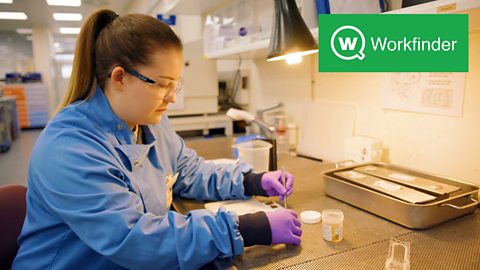
Find work experience placements with Workfinder.
Tips and advice
Help with interviews, writing a CV and all things work experience related.


Khadija: first aider
Khadija uses her medical knowledge to teach young people first aid.
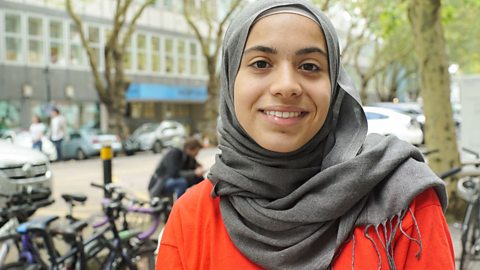
Jaz: research scientist. video
Jaz is a research scientist and PhD student.
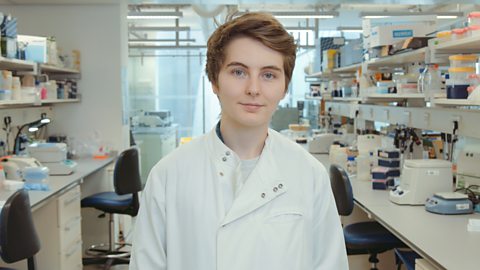
Lucy: vet
Lucy uses her knowledge of Biology in her job as a vet.
